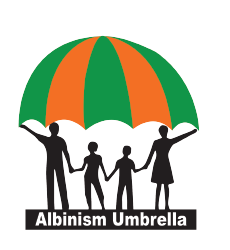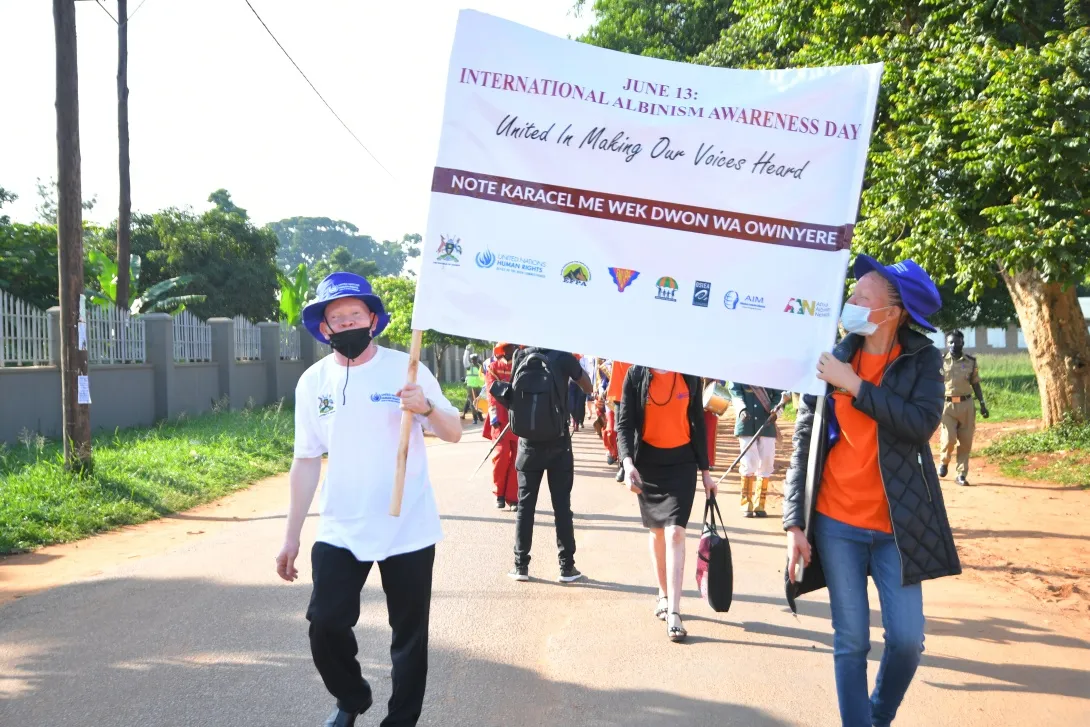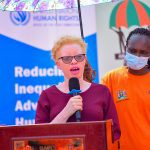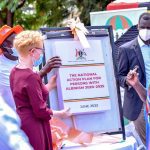It is a great pleasure for me to welcome you to the commemoration of the International Albinism Awareness Day and the Launch of the National Action Plan for Persons with Albinism in Uganda. I would like to particularly welcome those of you who travelled a long way to be here today and participate in this event.
Over the past years, Uganda has made commendable efforts in addressing discrimination against Persons with Albinism, including through the recognition of albinism as a form of disability in the Persons with Disabilities Act (2020). We applaud the Government of Uganda for this achievement. I want to also highly appreciate the harmonized engagement by CSOs of albinism in Uganda, which have been instrumental in successfully advocating for equality and inclusion and making Persons with Albinism heard in Uganda.
Ladies and Gentlemen,
Every year since 2015, the United Nations commemorates the International Albinism Awareness Day on June 13th. This year’s commemoration is unique in the sense that it is coupled with the launch of the National Action Plan for Persons with Albinism, which breathes life to both the Universal Declaration of Human Rights adopted by the United Nations in 1948 and the 2006 Convention on the Rights of Persons with Disabilities as well as other international and regional human rights instruments that emphasise the need to ensure equality and non-discrimination for everyone “without distinction of any kind, such as race, colour, sex, language, religion, political or other opinion, national or social origin, property, birth or other status”.
At the global level, the United Nations has appointed in 2015 an Independent Expert (IE) to promote the enjoyment of all human rights by Persons with Albinism.
At the national level, the UN Human Rights Office has been working with the albinism community, Parliament of Uganda, the Ministry of Gender, Labour and Social Development, the Equal Opportunities Commission, the National Council for Persons with Disabilities to support Persons with Albinism create more awareness on their condition and promote their human rights.
In this year’s commemoration of International Albinism Awareness Day, where we come together under the theme “UNITED IN MAKING OUR VOICES HEARD”, the UN Human Rights Office takes this opportunity to reaffirm that regardless of the form of disability, everyone has a right to life, liberty, and security of person, amongst others. The development, adoption, launch and implementation of the National Action Plan is therefore important and timely to promote the theme of today.
The goal of the NAP is to eliminate human rights violations and abuses against all People With Albinism in Uganda. In a bid to achieve this goal, the NAP prioritizes ten (10) areas of focus, which include: awareness-raising; access to adequate healthcare; access to all levels of education; access to work and employment; children with albinism; women with albinism; refugees with albinism; policies and laws; accountability; safety and security of Persons with Albinism. For each of these priority areas, the National Action Plan provides specific measures that need to be implemented and indicators for measuring the achievements in the implementation. The human rights issues affecting People With Albinism cut across various, hence the need for key stakeholders within the public and private sectors to collaborate in ensuring the effective implementation of the NAP.
In the words of the United Nations Secretary General during his remarks to the General Assembly on his priorities for 2022,” …The only certainty is more uncertainty. Meanwhile, inequalities are growing…” To counter this, therefore, it is important for us to recall the principles of universality, indivisibility, interdependence, interrelatedness and complementarity of all human rights and fundamental freedoms and the need for Persons with Albinism to be guaranteed the full enjoyment of their rights and freedoms without discrimination so that they can realize their potentials just like any other Ugandan. The UN Human Rights Office commends the Government and people of Uganda for having included the above-mentioned principles in the 1995 Constitution, putting in place the institutional framework, which permitted the inclusion of Persons with Albinism in the Persons with Disabilities Act, 2020.
Ladies and Gentlemen,
The work of the United Nations for the peoples of the world has been reinforced by the new Global Agenda for Sustainable Development that was adopted by world leaders in 2015. The Sustainable Development Goals call upon Governments to institute programmes that inter alia, end extreme poverty, provide quality education, reduce inequality, ensure peace justice and strong institutions, among others; in line with the principle of leaving no one behind.
Persons with Albinism are no exception to this principle. As we launch the NAP today, we commit to continue supporting the Government of Uganda towards joining efforts to mobilise resources from relevant partners to implement the Plan. We shall do this in close collaboration with the Ministry of Gender, Labour and Social Development as well as other relevant Ministries, Departments and Agencies. Hopefully, after the launch of the NAP we can immediately swing into discussion on the next steps for its dissemination and implementation.
Ladies and Gentlemen,
Lira City was chosen to host the commemoration of the International Albinism Awareness Day 2022 and the Launch of the NAP, to highlight the need to involve the local leadership in the protection of the rights of Persons with Albinism. As the United Nations Human Rights Office in Uganda, we are convinced that local leaders – are critical agents of change, allies, and influencers in the community.
In compliance with international human rights law, Article 21 of the Constitution of the Republic Uganda places an obligation on the State to promote equality and non-discrimination. Therefore, today’s commemoration in the presence of the Minister of State for Disability Affairs and other political leadership is in fulfilment of the State’s responsibility and commitment to its obligations under international law.
Once again, the UN Human Rights Office expresses its sincere gratitude to you all who are part of today’s commemoration and the launch of the NAP. We are particularly thankful to the Honorable Minister and her team, MPs, CSOs and the Lira City officials for hosting this event.
As I conclude, and on behalf of the UN Human Rights Office, we take this opportunity to call on us all to teach our young people about equality and non-discrimination and be advocates and ambassadors for the rights of Persons with Albinism in whichever spaces we may find ourselves.
Thank you for your kind attention
Last modified: February 8, 2024













